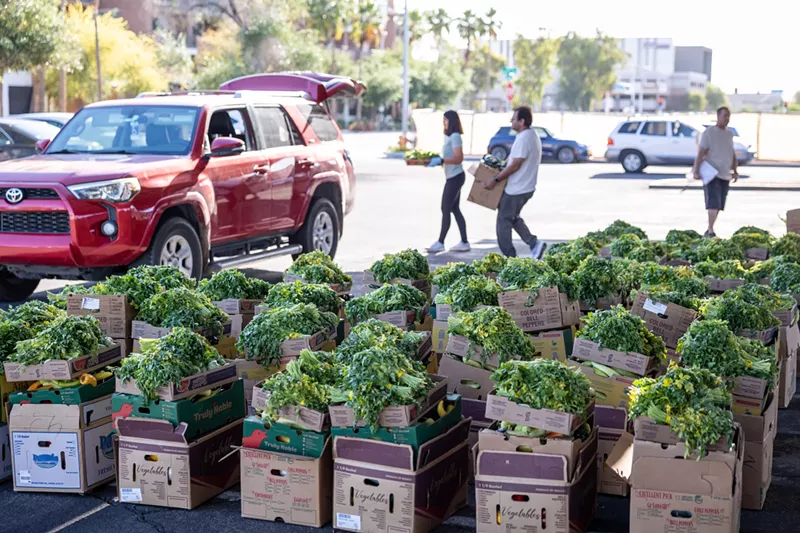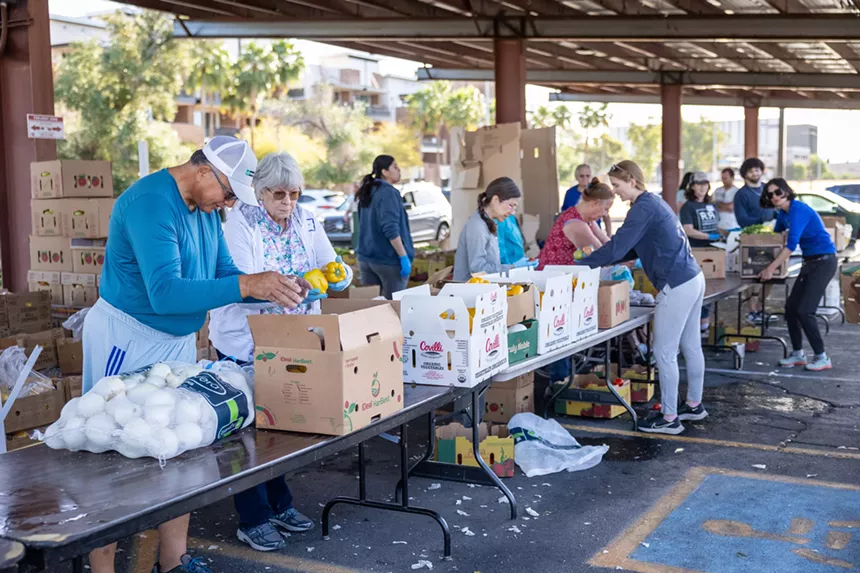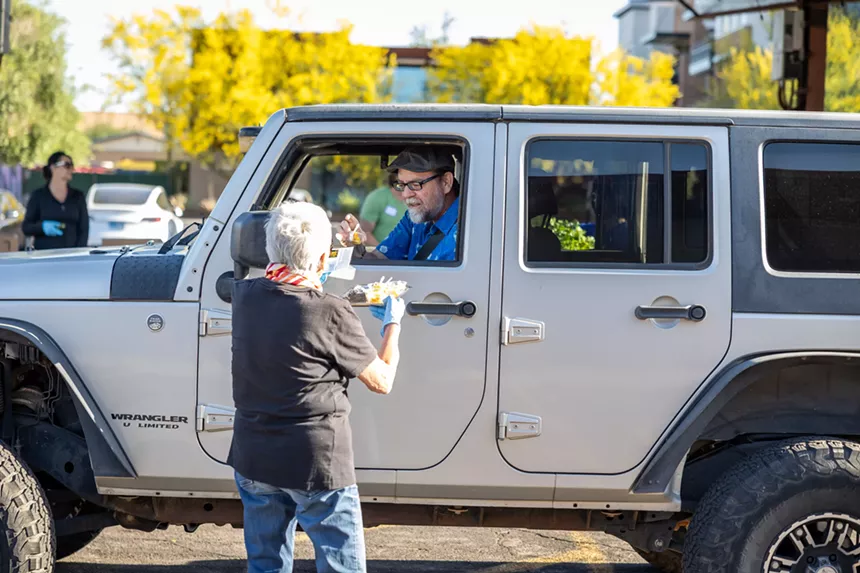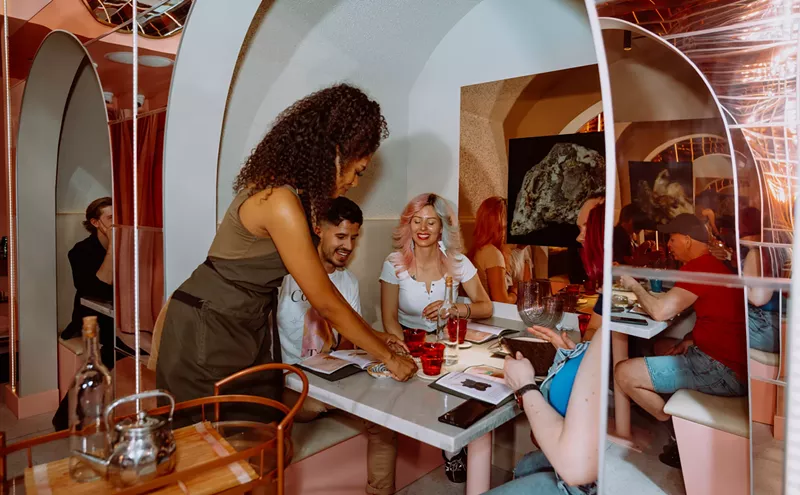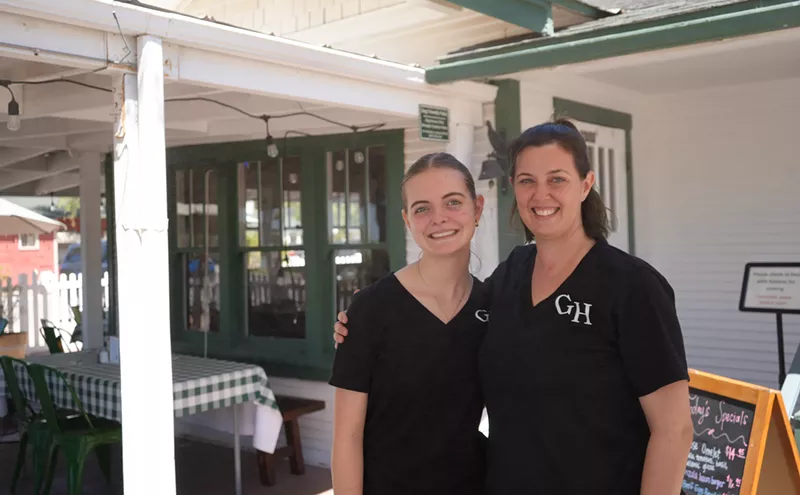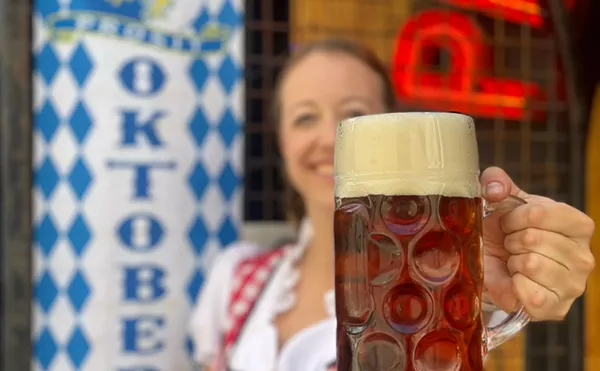They work quickly to ensure they're ready for the line of eager shoppers pulling up to purchase these hefty packages in exchange for a donation to Borderlands Produce Rescue. The nonprofit saves fruit and vegetables from landfills while providing an affordable way to buy fresh food.
Volunteer Marietta Strano leans over and asks the time. It's 6:45 a.m., 15 minutes before the nonprofit's drive-thru market technically begins, but a line of cars is forming on Osborn Road. The group is ready, so they begin waving people through.
"We're already pumping," she says.
Borderlands Produce Rescue founder Yolanda Soto says she’s noticed growing demand for the markets, this year in particular. This comes amid the rising cost of living in the Valley. Grocery bills, in particular, are eating into Phoenicians’ budgets.
In the last five years, Valley shoppers have seen food prices increase more than 27%, according to the Consumer Price Index, which tracks costs over time. Some of those hikes were driven by supply chain issues and bird flu. While there’s been relief on those fronts, the uncertainty in the economy over tariffs and inflation continues.
In the last five years, Valley shoppers have seen food prices increase more than 27%, according to the Consumer Price Index, which tracks costs over time. Some of those hikes were driven by supply chain issues and bird flu. While there’s been relief on those fronts, the uncertainty in the economy over tariffs and inflation continues.
“Things are getting expensive now, that’s just the reality of it," Adam Mijares says. "Groceries, they’re not what they were a few years ago."
This weekend, he scored two repurposed produce boxes brimming with onions, peppers, tomatoes, several kinds of squash, Brussels sprouts and parsley.
‘The best kept secret in town’
Borderlands started in Nogales nearly 30 years ago. Its founder grew up along the southern border and saw the sheer volume of fruits and vegetables that were grown in Mexico and brought into the United States through the Nogales-Mariposa Port of Entry – more than 60% of North America's winter produce, according to Borderlands.Soto also witnessed the waste. Sometimes, a shipment of tomatoes doesn’t meet the cosmetic standards for grocery store displays. Demand may be down for squash. Whatever the case, about 5-8% of that imported produce doesn't sell. Much of it goes to waste.
That’s where Borderlands comes in.
Since 1996, the nonprofit has rescued 900 million pounds of produce from distributors. These rescued fruits and veggies are shared in several ways, including through the Produce on Wheels With-Out Waste, or POWWOW, markets, which have been running for 11 years.
On Saturday mornings between November and June, Borderlands hosts at least six drive-thru markets statewide, with several around the Valley. That includes the Scottsdale market, which pops up at the FBCScottsdale church lot monthly.
Each site is manned by 20 to 30 volunteers who sort and package produce and keep traffic moving. When the POWWOWs began, they were set up like farmers' markets where people could pick their produce. That option remains at a small number of sites, including one in Glendale. The majority of markets are a drive-thru model with pre-packed boxes — a “trunk-to-truck” pivot from the pandemic that stuck.
“People prefer it,” Soto says. “It’s faster.”
People can wait in line and pay $15 cash on the spot or $20 to reserve their produce online. The fee is a donation that covers the organization’s costs to store and move the produce. Smaller 25-pound produce boxes are available at some locations, too. Those must be secured online and are delivered by DoorDash. That value made it Phoenix New Times’ Best Community Food Resource in 2024.
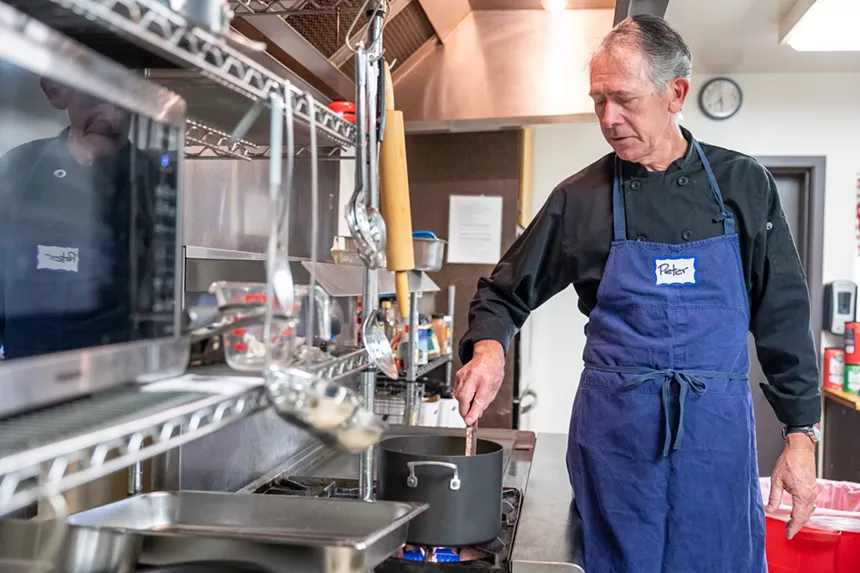
Chef Peter Frost prepares pickled squash for shoppers at a Scottsdale POWWOW to sample.
Jacob Tyler Dunn
Though interest is growing, Peter Frost says the markets are still “the best-kept secret in town.”
Frost is a chef, and he lives in the apartment building across Osborn Road from the church. His interest was first piqued when he noticed a tractor-trailer pulling up in the middle of the night. Once Frost, who cooks at Scottsdale Stadium, learned about Borderlands, he got involved.
Frost offers his cooking expertise by creating recipes and samples that feature each week's produce. This Saturday, it’s pickled summer squash made with Anaheim chiles, mustard seed and turmeric.
“I just like helping where I can," says Frost, who also manages the 40 community garden boxes on the church's campus. "It’s rewarding and I still continue to learn a little bit more about the craft that I love."
Most people who visit Borderlands are up to the challenge of working through their cornucopia, but these “rescue to table” samples help spur ideas.
While drivers wait for the produce boxes to be loaded into their cars, volunteer Strano brings over a silver tray with small cups of Frost’s canary yellow squash.
“Good morning, want a pickle?” she asks, with recipe cards in hand.
Paying it forward with produce
Chandler resident Mijares says Borderlands helps him eat more fruit and vegetables. From his hauls over the past few weeks, he's made big batches of soup, salsas and tomato sauces that he’s eaten, frozen and gifted to friends.“A lot of this repurposed produce, sometimes it seems like it might be on its way out, so we’re giving it an opportunity to not go to waste,” he says.
That’s exactly the intention, Soto says.
“We really encourage people to pay it forward,” Soto says. “Seventy pounds is a lot of produce.”
Although Borderlands shares the weekly lineup for each location, some people like to play roulette.
“It’s kind of a surprise when you get it,” Lynn Kerr says, sitting in her car with her dog peeking out behind her. The Scottsdale resident plans to split the produce with a friend and offer anything she can’t use to her local Buy Nothing group.
Tammy Crowley, the volunteer ambassador for the Scottsdale market, says buying Borderlands produce is also a low-cost way to try something new.
“We get varieties of things that otherwise you would pass up in a grocery store,” she says. “You may not want to spend the money to try something.”
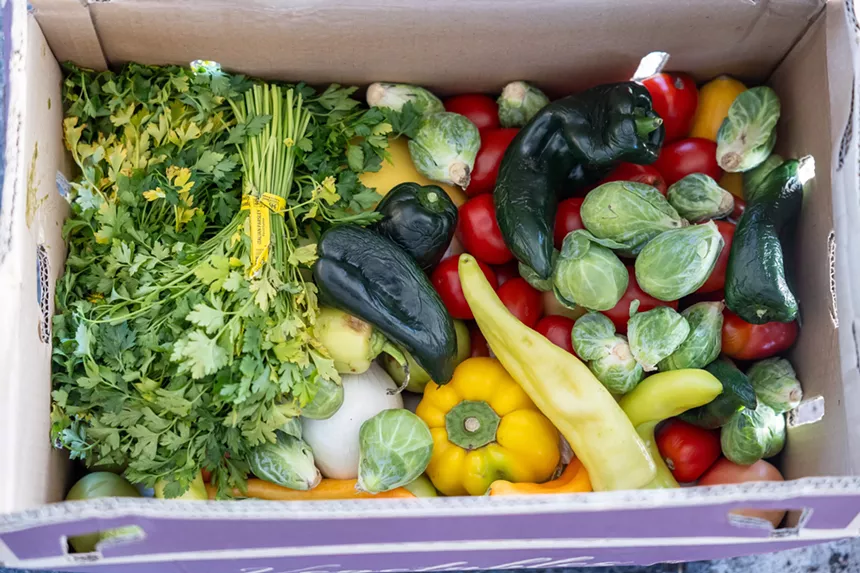
Each week, the selection of produce available rotates, meaning shoppers always have something new to try.
Jacob Tyler Dunn
‘Ingenious’ cooks come up with ways to use produce
Because the produce is rescued, it may have some bruises or show signs of withering or wilting. That doesn’t make it unsafe to eat, Soto says. Food safety is a top priority and the organization works to educate customers on how to use their produce.“If a bell pepper is a little soft, don’t use it in a salad. Roast it,” she says.
Any produce that’s not distributed or fit for consumption is offered to farmers and ranchers for animal feed or compost.
Meghan Barton, a truck driver, has gone to Borderlands POWWOW sites around the state for years. She and other shoppers note they still sometimes have to toss or compost items that are too far gone. That reality doesn’t dissuade them from returning.
“Let’s say, even with a cucumber, you’re only using five-eighths of a cucumber, that’s still a good deal overall,” Barton says.
She combines the produce with items from the store to prepare meals like stuffed peppers.
“Do a little prep for an hour, you know, you’ve got food for weeks to grab and go,” Barton says.
Crowley has dehydrated her bell peppers and ground them into a powder to add to seasoning blends. She gets tips from other Borderlands shoppers, too.
“On the Borderlands Facebook group, you would be so blown away with the people’s recipes and things they make and things you would never otherwise do,” she says. “People are ingenious.”

